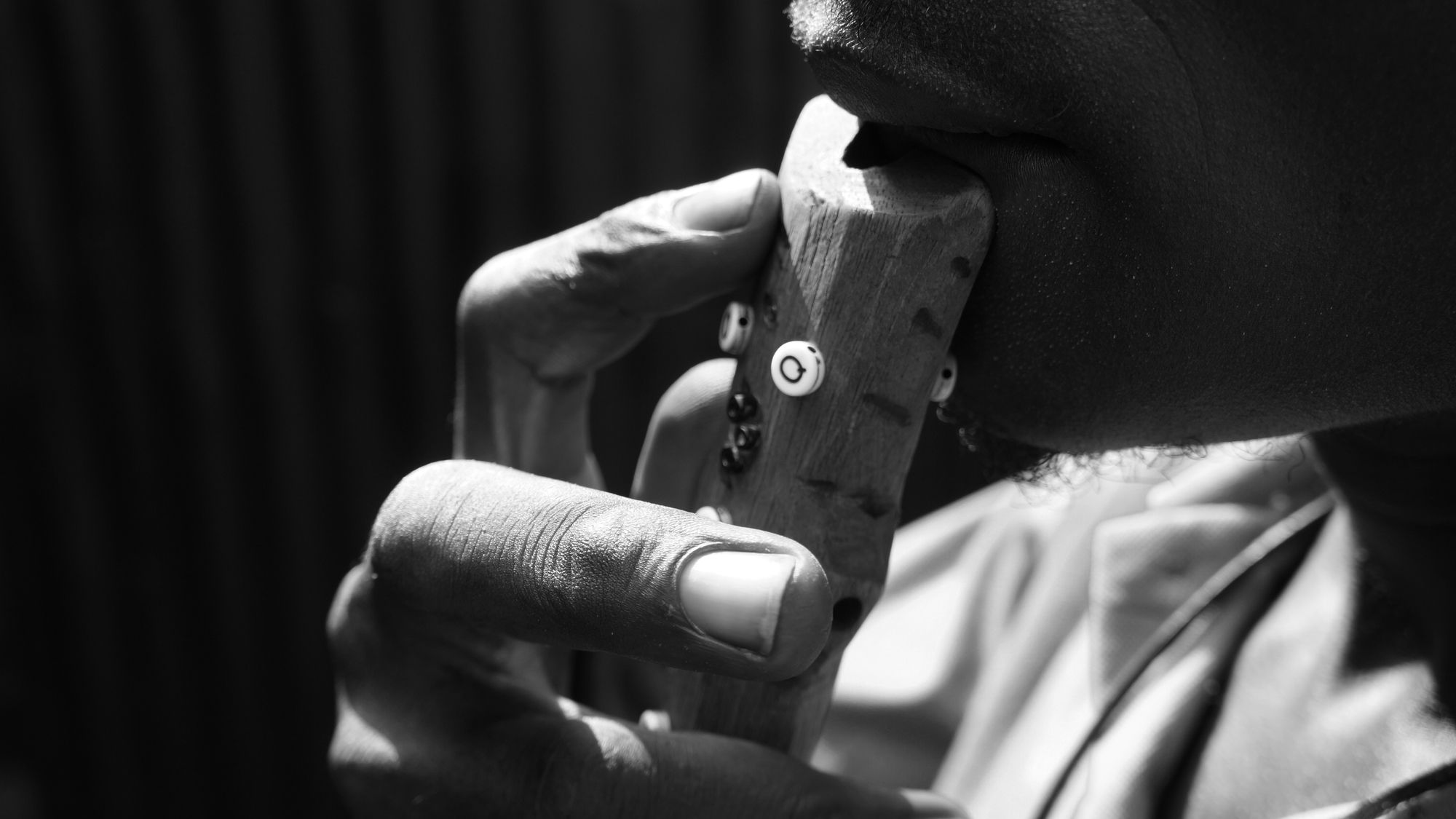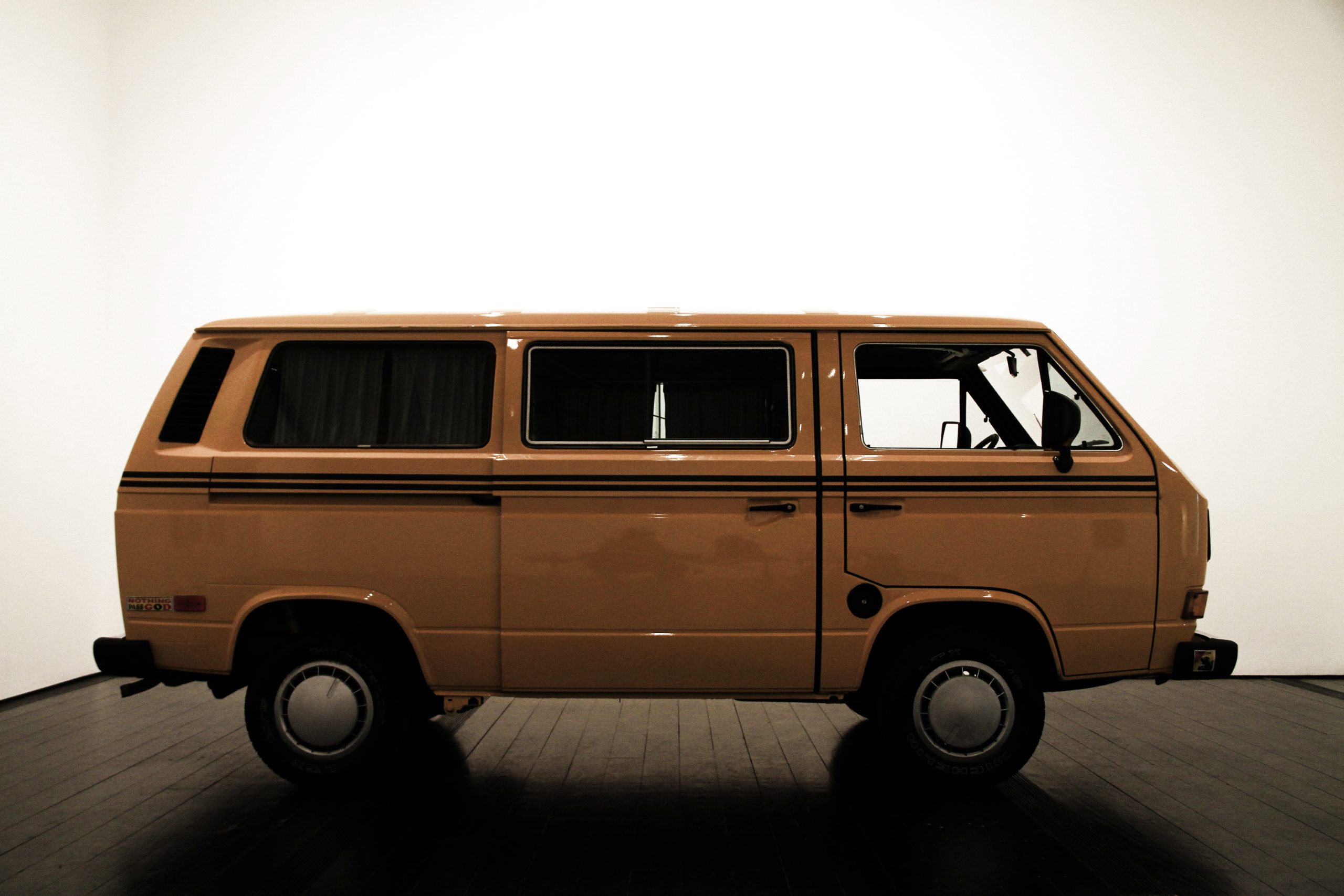To celebrate 1:54’s fifth anniversary Modern Forms commissioned Emeka Ogboh to create a site-specific installation at the fair. Ebube Dike, meaning ‘glorious warrior’ in Igbo, is a multi-channel sound installation ascending Somerset House’s Stamp Stairs. The piece combines the serenading properties of the Oja (Igbo flute) with fragments of famous speeches by African political leaders to create a sonic ode to African renaissance.
‘The Oja is fundamentally employed for performance-composition of melodies, as well as simulation of texts in music and dance performance situations. It provides lyrical melodies that contribute immensely to the overall timbre and aesthetics of Igbo music… It is [also] employed in non-musical events and contexts as a talking instrument. As such, it encodes significant messages within non-musical contexts. In such instances, it conveys relevant messages to cognitive members or initiates in a ceremony. It is partially used for salutations on these occasions.’
Christian Onyeji: Playing Technique and Contemporary Compositions for the Oja (Wooden Flute). In Music and Social Dynamics in Nigeria (Religion and Society in Africa 3), Ed. Bode Omojola, 2016.
Emeka Ogboh
Emeka Ogboh (b. 1977, Enugu, Nigeria) is a pioneer of sound art on the African continent. Through his audio installations Ogboh explores how private, public, and collective memories and histories are translated, transformed and encoded into sound and sonority. The work contemplates how sound captures existential relationships, frames our understanding of the world, and provides a context in which to ask critical questions around immigration, globalization and post colonialism.
Ogboh has participated in numerous international exhibitions including the 56th edition of La Biennale di Venezia, Italy (2015); documenta 14, (2017), Athens and Kassel,and Skulptur Projekte Münster, 2017. Ogboh is also co-founder of the Video Art Network Lagos. In 2016 Ogboh was awarded Prize of the Bottcherstraße in Bremen.
Oja Flute
‘The Oja is fundamentally employed for performance-composition of melodies, as well as simulation of texts in music and dance performance situations. It provides lyrical melodies that contribute immensely to the overall timbre and aesthetics of Igbo music and is also employed in non-musical events and contexts as a talking instrument. As such, it encodes significant messages within non-musical contexts, conveying relevant messages to cognitive members or initiates in a ceremony. It is partially used for salutations on these occasions.’
– Christian Onyeji
Lagos Soundscapes
Emeka Ogboh’s Lagos Soundscapes project explores the interplay of sounds that comprise the aural character of African megacity, Lagos. The work’s raw materials are Ogboh’s recordings of the many, de nitive sounds of the city: Sounds of traf c and public transportation which de ne the hustle and bustle of Lagos. The sounds of market places and itinerant hawkers that represent Lagos’ abundant commercial energies. The sounds of worship from churches, mosques and other religious activities and contrasting sounds of Lagos’ famously lively nightlife scene. The city’s human breadth and multiculturalism manifests in the many languages that can be heard in the work; Pidgin English, Yoruba, Igbo and other Nigerian, West African and foreign tongues. The project is a portrait of Lagos, formed of sounds shaped by the city’s complex economic, social, and cultural interrelationships.
Nigeria: the distinctive sounds of Lagos
In Conversation With Emeka Ogboh on Lagos, and Listening To The World In a Musical Way














